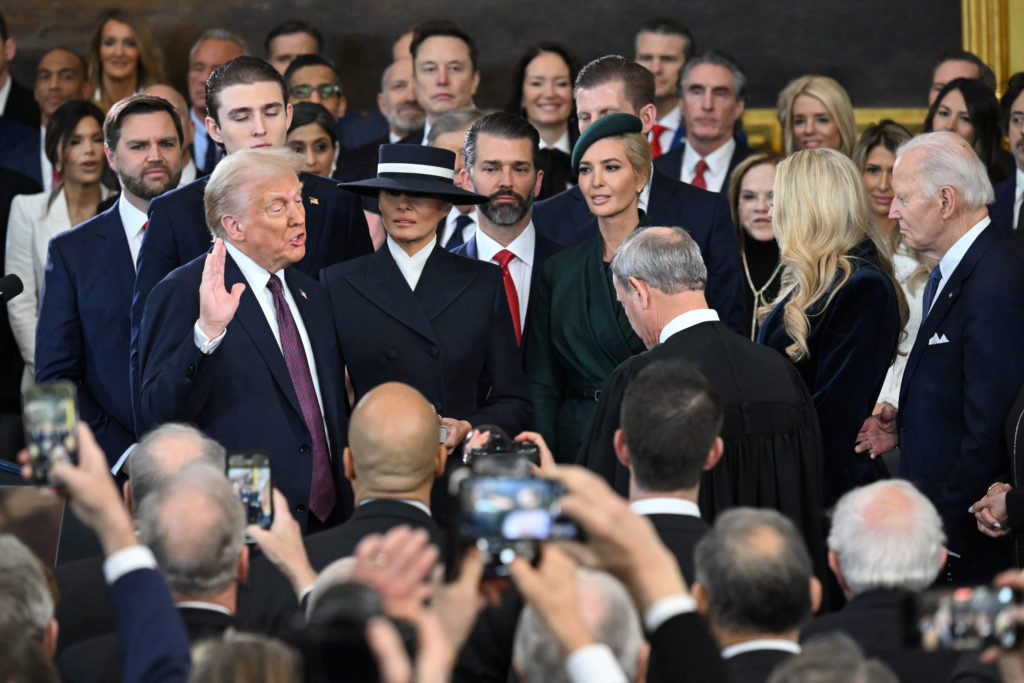Trump’s America: Navigating Extreme Capitalism and Transactional Democracy

In recent time, the American political landscape has undergone a profound transformation under the influence of Donald Trump, with policies that have been characterised by a move towards what some commentators describe as “extreme capitalism” and a transactional form of democracy. This report examines the evolution of these policies and their multifaceted implications, both domestically and on the international stage, while providing a critical analysis of the advantages and disadvantages inherent in the Trump administration’s approach.
At the heart of the economic agenda pursued by the Trump administration was a decisive embrace of deregulation and substantial tax cuts. The rationale behind these measures was to stimulate economic growth by reducing the financial burdens on corporations and high-net-worth individuals, thereby encouraging investment and business expansion. Proponents argued that such policies revitalised domestic industries, fostered an environment of entrepreneurial dynamism, and streamlined bureaucratic processes by eliminating what was perceived as an overly cumbersome regulatory apparatus. However, these benefits were counterbalanced by significant concerns. Critics have maintained that these policies disproportionately favoured the wealthy and corporate entities, contributing to a widening income gap and undermining social cohesion. Furthermore, the reduction in tax revenues raised pressing questions about long-term fiscal sustainability and the government’s capacity to fund essential public services and infrastructure projects.
The administration’s approach to trade further exemplified its commitment to a more insular, protectionist economic model. Moving away from the established paradigms of free trade, Trump’s policies were characterised by the imposition of tariffs and the renegotiation of longstanding trade agreements. This shift was premised on the belief that safeguarding domestic industries from what was viewed as unfair international competition would restore economic balance and protect American jobs. While such measures were successful in galvanising certain segments of the manufacturing sector and were seen as a reassertion of national economic sovereignty, they also carried the risk of triggering retaliatory trade measures from global partners. This, in turn, posed a threat to international economic stability and could result in higher costs for consumers, thereby negating some of the intended protective benefits.
Equally significant was the Trump administration’s reconfiguration of American foreign policy, which saw a marked departure from the multilateralism that had underpinned the post-Second World War global order. By adopting a transactional approach to international relations, the United States began to negotiate on a deal-by-deal basis, emphasising immediate, tangible benefits rather than long-term strategic partnerships. This method of transactional diplomacy, while effective in asserting national interests and securing direct concessions from other nations, has led to a noticeable erosion of trust among traditional allies. The shift from cooperative, rules-based international engagement to a more utilitarian and self-centred approach has raised concerns about the durability of international alliances and the potential destabilisation of global governance frameworks. Critics contend that by reducing international engagements to a series of negotiations, the United States risks undermining the very foundations of global stability that have been cultivated over decades.
The repercussions of this foreign policy reorientation were perhaps most visible in the decision to withdraw from several key international accords, including the Paris Climate Agreement. This move was defended on the grounds of reclaiming policy autonomy and simplifying the United States’ international commitments, allowing for a more focused pursuit of national interests. Yet, the withdrawal also signalled a retreat from global leadership, diminishing the United States’ role in addressing transnational challenges and inadvertently empowering emerging powers such as China. The resultant vacuum in global leadership has contributed to a realignment of international relations, where the traditional pillars of American influence are increasingly contested.
On the domestic front, immigration policy under Trump further encapsulated the administration’s overarching “America First” agenda. Stringent measures, including travel bans and the construction of a border wall, were implemented in the name of national security and the protection of domestic labour markets. While these policies were lauded by supporters for reinforcing national sovereignty and bolstering security, they also generated significant social and economic disruption. Critics argued that such measures sowed division within society, undermining the nation’s longstanding identity as a beacon of diversity and openness, and potentially disrupting sectors of the economy that are heavily reliant on immigrant labour.
Efforts to reform healthcare and social policy under Trump similarly reflected a commitment to market-driven solutions and a reduction in government intervention. Advocates of these reforms suggested that fostering competition within the private sector would lead to more efficient service delivery and cost control. Nonetheless, the complexity of these systems meant that any reduction in government involvement carried the risk of leaving vulnerable populations without adequate support, thereby exacerbating existing inequalities and creating uncertainty during the transitional period.
In conclusion, the Trump era represents a complex interplay of progress and pitfalls, encapsulating a deliberate shift towards policies that prioritise immediate, transactional benefits over long-standing multilateral commitments. The emphasis on extreme capitalism and transactional diplomacy has yielded certain short-term economic gains and reinforced an assertive stance on national sovereignty, yet it has also precipitated significant challenges. These include growing economic inequality, a fracturing of international alliances, and a diminution of America’s role in upholding a stable global order. As the United States continues to navigate the legacies of this transformative period, the debate over the long-term implications of these policies remains both vibrant and contentious, inviting further scrutiny from policymakers, scholars, and citizens alike.



Comments